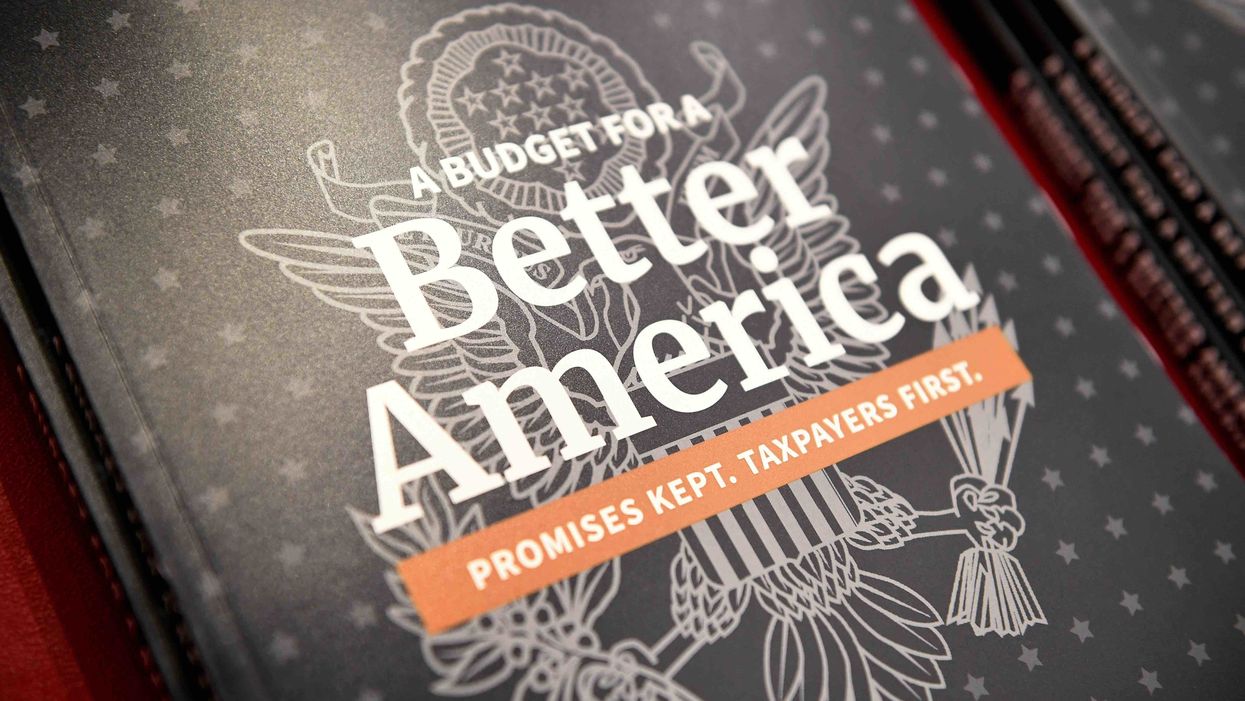
MANDEL NGAN/AFP/Getty Images

Out of control
If you need further proof of how dysfunctional the D.C. conversation about our national debt is, look no further than the conversation around President Donald Trump's latest budget proposal, where House Budget Committee Democrats simultaneously attacked the budget for spending too little and too much.
"These cuts in the Trump budget aren't a tightening of the belt or a trimming of the fat, or even a serious attempt at reining in spending," committee Chairman John Yarmuth (D-Ky.) said Tuesday in his opening statement. "They are extreme to a level that is malicious — a level that is intended to do harm."
Rep. Ro Khanna (D-Calif.) grilled acting Office of Management and Budget Director Russ Vought on proposed Medicare cuts in the budget plan. Vought pointed out that the budget increases Medicare spending every year, but that the roughly $500 billion Khanna asked about would consist of savings from "commonsense" reforms to the program.
Rep. Scott Peters (D-Calif.) grilled the director about why there were proposed cuts to certain types of green energy research at the Department of Energy.
"We believe that in a time of trillion-dollar deficits," Vought answered, "that the resources that the Department of Energy has should be devoted towards basic research that would not otherwise be done by the private sector."
Others slammed the budget because it added too much to the debt.
Rep. Seth Moulton (D-Mass.) hounded Vought on growing debt and deficits in the wake of Republicans' 2017 tax cut bill and even managed to quote former Republican House Speaker Paul Ryan in doing so. Moulton asked Vought about President Trump's promise to get the debt under control in eight years in 2016; Vought conceded that at the end of that time frame, the current budget would still post trillion-dollar deficits.
You can watch the full hearing here:
Hearing 2019-005: The President's 2020 Budgetwww.youtube.com
So, to hear Democrats tell it, the proposed budget is bad because it spends too much and creates too much debt, and it's bad because it doesn't spend enough on federal programs.
The budget proposal claims a fig leaf of fiscal responsibility by including just under $3 trillion in mandatory spending reductions in non-defense spending over the next 10 years, five years after which it also is planned to balance, based on revenue increases from a jump-started economy.
But that's up against $7.3 trillion in added total deficits with four straight projected years of trillion-dollar budget deficits.
We're already $22 trillion in debt. Democrats can complain about the Republican tax cuts all they want, but the national debt was growing just fine before those became law, through the very programs that they don't want to see cut. And as much as the president's political opponents want to blame America's current budgetary problems on the 2017 tax cuts, this problem can't be fixed by taxation alone.
According to numbers from October, the 585 billionaires in the U.S. have a combined net worth of about $3.1 trillion. So even if some socialist scion were to take control of our fiscal policy and tax those billionaires for literally everything they were worth, we'd have enough revenue to make about a 14 percent dent in the national debt or fully fund a $4.75 trillion federal budget for 237.4 days (just under eight months). That's it.
Furthermore, Conservative Review's Daniel Horowitz explained last month that "this bipartisan era of debt is worse than anything we've seen this generation, and it is all happening with record revenue and a booming economy."
Unless we actually want to tax our economy back to the Stone Age, the cuts are eventually going to have to come from somewhere. And because the federal leviathan is so big and its reach is so extensive, spending cuts are going to affect some people adversely no matter how they happen. But they have to happen at some point.
We need to have a conversation about how much we want the federal government to spend, and it needs to end with us spending a lot less. Yes, this would get the easy targets like quails on cocaine and other ridiculous examples. It needs to include how much we're going to spend on entitlement programs like Medicare in the long run. And we also need to ask questions like whether or not the Pentagon ought to have an extra $4.6 million to spend on lobster and snow crab when it hasn't yet passed an audit.
Bottom line: Until there's a bipartisan consensus that we shouldn't try to spend more taxpayer money than we bring in, this conversation will remain just as broken as it was Tuesday morning.